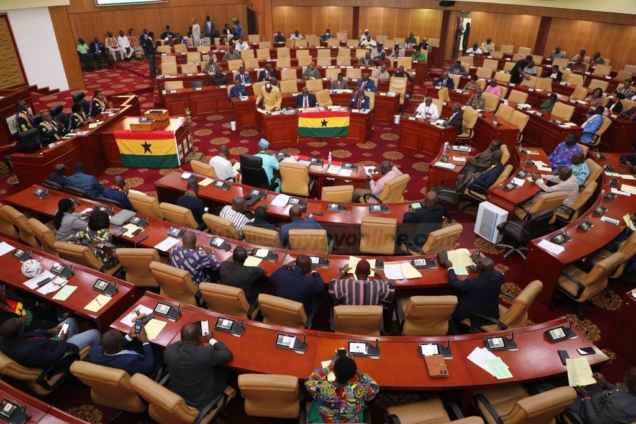Professor Peter Quartey, the Director, Institute of Statistical Social and Economic Research (ISSER), has called on Parliament, to urgently restore the Fiscal Responsibility Act to curb discretionary expenditure.
Failure to do so, he said, could worsen Ghana’s debt situation, especially, going into an election year in 2024, despite the current implementation of the International Monetary Fund (IMF) US$3 billion loan-support programme.
Prof Quartey said this in an interview with the media after a forum on Monday, September 18, in Accra, on “Ghana’s public debt management: facts, impact, and the way forward.”
The Fiscal Responsibility Act, 2018 (Act 982) charges the Government to ensure that the overall fiscal balance on cash basis for a particular year does not exceed a deficit of five per cent of the Gross Domestic Product (GDP) for that year.
However, it was suspended in 2020, following the outbreak of the COVID-19 pandemic, as the Government envisaged that it would not meet the five per cent deficit threshold sooner than 2024.
While the Act is to primarily ensure macroeconomic stability and debt sustainability by limiting fiscal deficit with the five per cent cap, at the time of its suspension, the country had a fiscal deficit of 11.4 per cent of GDP.
The situation, Prof Quartey said, contributed to Ghana’s huge debt situation, leading to the 17th loan-support programme with the IMF, and called on Parliament to bring back the suspended Act.
He said that though Parliament had the power to check both the Central Bank and the Finance Ministry, it fell short with its oversight responsibility.
“So, when they were faced with the challenge, the easier way was for the Central Bank to support the government. “Prof Quartey, also an Economist said, adding that there should be rules on discretionary spending.
“Discretionary behaviour if not checked, can lead to crisis… We have the right to bring the Finance Minister and the Governor Bank of Ghana to Parliament to seek approval so why do we avoid this situation going forward,” he said.
He recommended that in times of financial difficulties, Parliament should ensure that its suspension of the Fiscal Responsibility was made temporal, and “give timeline, so that for example, in one year they can come back for another approval.”
To put authorities in check, he also recommended that punitive measures should be meted out to those who flouted the Act.
Dr Sam Mensah, a Financial Economist and Investment Banking Consultant, during a presentation at the forum, echoed the essence of fiscal prudence in ensuring debt sustainability.
He called for a review of the Constitution to limit government’s discretionary expenditure and borrowing in addition to policies that would strengthen the financial sector.
He said that was important because in situations of economic crisis, the financial sector’s suffering was amplified due to its lending to the Government.
Latest Stories
-
Woman dies after being set on fire on NYC subway
1 hour -
Elon Musk’s curious fixation with Britain
1 hour -
EBID wins the Africa Sustainability Award
3 hours -
Expansion Drive: Takoradi Technical University increases faculties
8 hours -
SHS heads demand payment of outstanding funds before reopening of schools
8 hours -
We thank God for the 2024 general elections – Akufo-Addo
8 hours -
Coconut Grove Beach Resort marks 30 years of excellence with memorable 9 lessons & carols service
9 hours -
WAFU B U-17 Girls’ Cup: Black Maidens beat Nigeria on penalties to win inaugral tournament
9 hours -
Real Madrid beat Sevilla to keep pressure on leaders Atletico
10 hours -
Liverpool put six past Spurs to go four points clear
10 hours -
Manchester United lose 3-0 at home to Bournemouth yet again
11 hours -
CHAN 2024Q: ‘It’s still an open game’ – Didi on Ghana’s draw with Nigeria
11 hours -
CHAN 2024Q: Ghana’s Black Galaxies held by Nigeria in first-leg tie
12 hours -
Dr Nduom hopeful defunct GN bank will be restored under Mahama administration
12 hours -
Bridget Bonnie celebrates NDC Victory, champions hope for women and youth
12 hours

